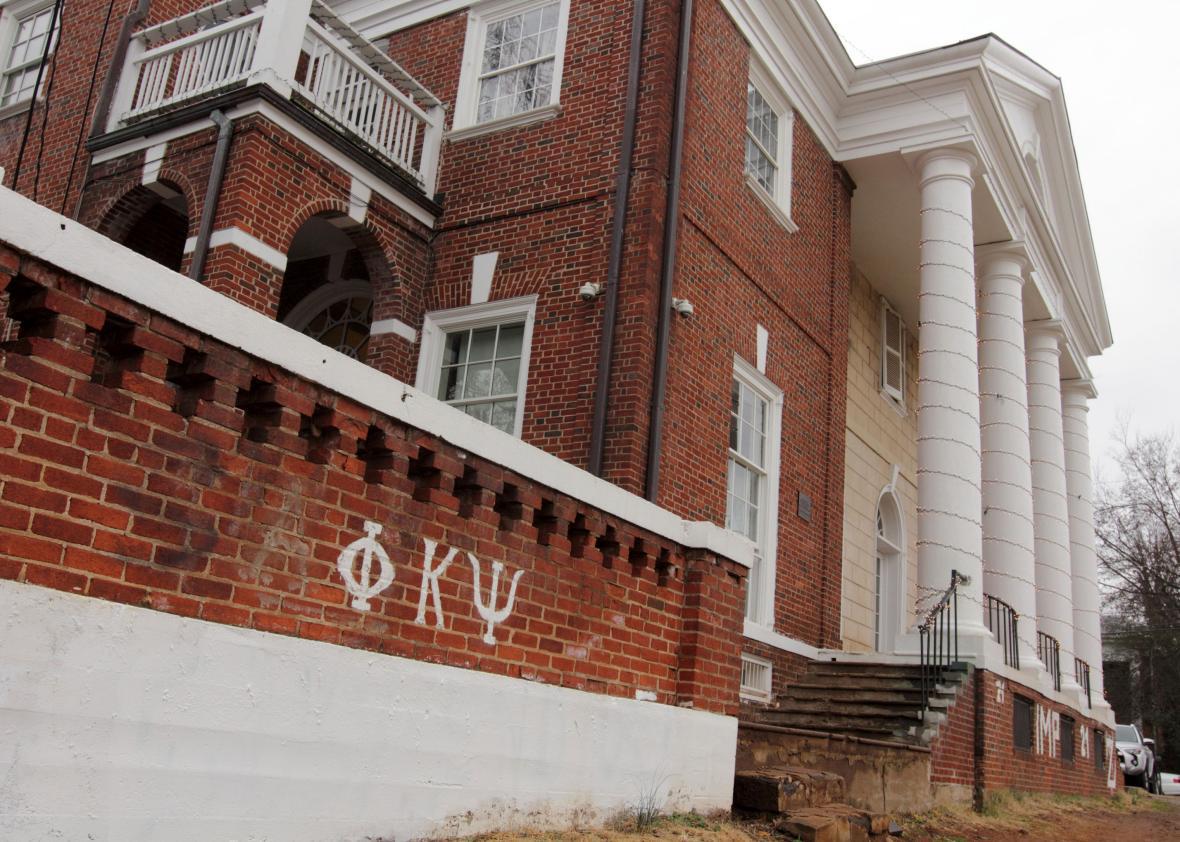The woman who fabricated what became Rolling Stone’s infamous feature about a gang rape at the University of Virginia, known to readers only as “Jackie,” will finally be forced to explain herself later this week—but, at least for the immediate future, only a few people will get to hear it.
According to CNN, a Virginia judge ruled Monday that Jackie must testify as part of the lawsuit in which UVA administrator Nicole Eramo is suing Rolling Stone and the journalist who wrote the story, Sabrina Rubin Erdely. Jackie’s attorneys had argued that she would be “re-victimized” by the deposition process and subjected to potentially “irreparable harm.” Judge Glen Conrad denied their motion and allotted the plaintiff’s attorneys five hours over a two-day period to question Jackie, with the possibility of additional time. The deposition will begin Thursday, and Conrad ruled that it would be held at a “mutually convenient location, with priority given to the convenience of and comfort” of Jackie. All the same, Jackie’s identity—and rationale—will remain as mysterious as they have since her account began to unravel in late 2014: Conrad added that the records and transcripts of the deposition will be sealed.
Rolling Stone’s story, originally published in November 2014, presented the horrifying tale of a freshman, “Jackie,” who claimed she was brutally gang-raped at a fraternity party and then met with chilly indifference from her university—especially Associate Dean of Students Eramo—when she sought to report it. But within weeks of the publication date, the story fell apart under the pressure of questioning from other journalists, among them Slate’s Allison Benedikt and Hanna Rosin. Rolling Stone was forced to admit that it had relied more or less exclusively on Jackie’s account, failing to check it with the alleged perpetrators. The magazine ultimately retracted the story when a scathing analysis by the Columbia Journalism Review—which Rolling Stone requested and co-published—dubbed the incident “a story of journalistic failure that was avoidable.” An investigation by the Charlottesville police department found no evidence that the rape had occurred.
The story’s impact on the campus rape debate is still visible: Conservatives cite Jackie as evidence that women lie, and women’s advocates decry the damage Rolling Stone did to the credibility of real victims. And Eramo’s suit—for $7.85 million in damages over what she claims was a defamatory portrayal of her approach to sexual assault and her work as an administrator—isn’t the only legal battle. Phi Kappa Psi, the frat named in the article, is also suing Rolling Stone for $25 million, and three of its former members are suing separately for an undisclosed amount.
Through it all, Jackie has remained anonymous, at least partially shielded from the anger and anguish that her story incited. Steve Coll, the dean of the Columbia Journalism School, told The Washington Post this January that he thinks that’s for the best: “It’s an unusual situation, and I understand the argument on the other side, but I would not name her … She never solicited Rolling Stone to be written about. She’s not responsible for the journalism mistakes. To name her now just feels gratuitous, lacking sufficient public purpose. That could change depending on how the legal cases unfold, but that’s my sense now.”
Coll is right, of course, that the attention should stay on Rolling Stone and Erdely, who, unlike Jackie, had a clear responsibility to their readers—and it seems that Judge Conrad agrees. Jackie is not on trial this week, but if her full name and deposition were to be released, there’s no doubt that, in the public eye, she would be.
